联系我们
邮箱:shanghai.cga@nyu.edu
电话:+86 (21) 20595043
微信公众号:NYUShanghaiCGA
地址:
上海市浦东新区杨思西路567号
W822室

© 2024 All Rights Reserved
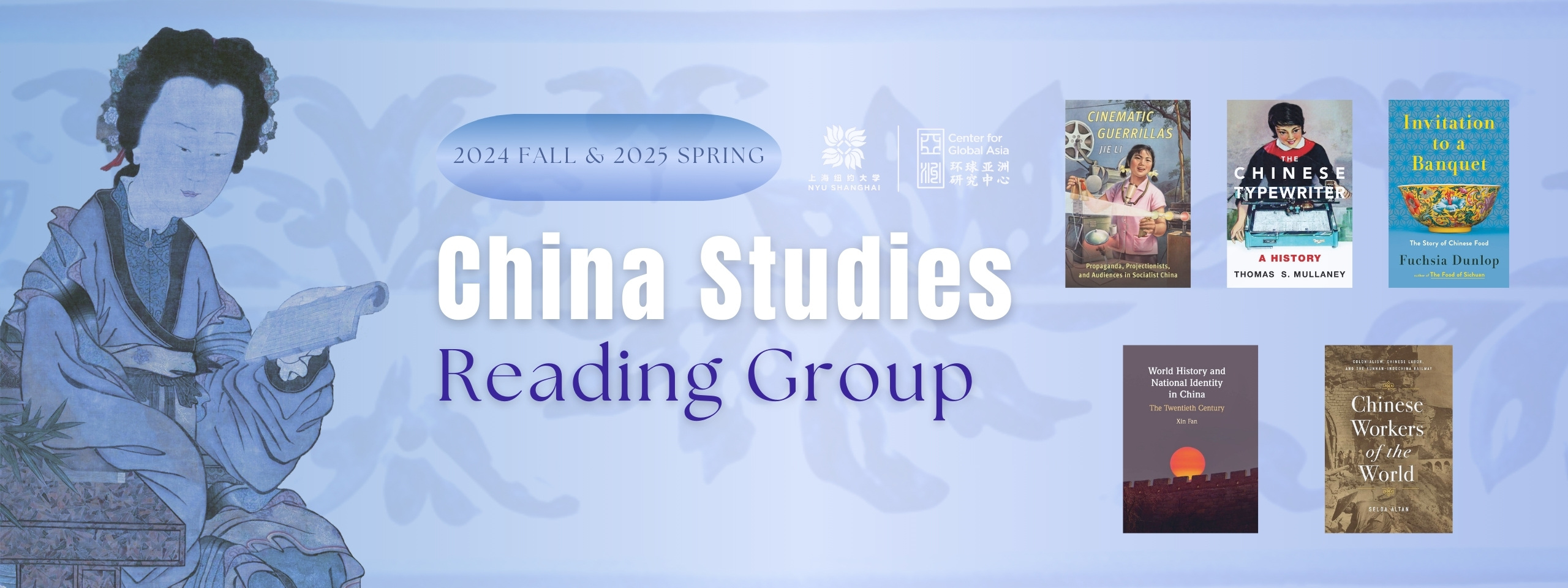
Organized by:
Lena Scheen, Director of the Center for Global Asia
Mengdie Zhao, Assistant Professor Faculty Fellow of Global China Studies
地点: S307, NYU Shanghai New Bund Campus
CGA Coordinator: Morland Jiang, zj2481@nyu.edu
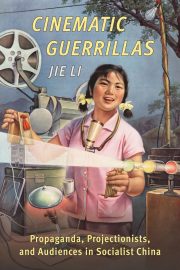
Cinematic Guerrillas: Propaganda, Projectionists, and Audiences in Socialist China
Cinematic Guerrillas is a media history of Chinese film exhibition and reception that offers fresh insights into the powers and limits of propaganda. Drawing on a wealth of archives, memoirs, interviews, and ethnographic fieldwork, Jie Li examines the media networks and environments, discourses and practices, experiences and memories of film projectionists and their grassroots audiences from the 1940s to the 1980s. She considers the ideology and practice of “cinematic guerrillas”—at once denoting onscreen militants, off-the-grid movie teams, and unruly moviegoers—bridging Maoist iconography, the experiences of projectionists, and popular participation and resistance. Li reconceptualizes socialist media practices as “revolutionary spirit mediumship” that aimed to turn audiences into congregations, contribute to the Mao cult, convert skeptics of revolutionary miracles, and exorcize class enemies.
Reviews by Yiyang Hou 和 Russell Burgos
Date & Time: November 1st, Friday | 12:00pm – 1:00pm
Discussant: Ka Lee Wong, Assistant Professor of Global China Studies, NYU Shanghai
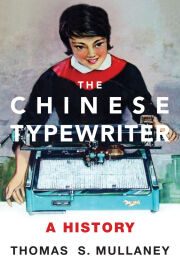
The Chinese Typewriter: A History
Chinese writing is character based, the one major world script that is neither alphabetic nor syllabic. Through the years, the Chinese written language encountered presumed alphabetic universalism in the form of Morse Code, Braille, stenography, Linotype, punch cards, word processing, and other systems developed with the Latin alphabet in mind. This book is about those encounters—in particular thousands of Chinese characters versus the typewriter and its QWERTY keyboard. Thomas Mullaney describes a fascinating series of experiments, prototypes, failures, and successes in the century-long quest for a workable Chinese typewriter.
Reviews by Nick Cullather 和 Michela Bussotti
Date & Time: December 6th, Friday | 12:00pm – 1:00pm
Discussant: Edad Mercier, Postdoctoral Teaching Fellow for Global Perspectives on Society (GPS), NYU Shanghai
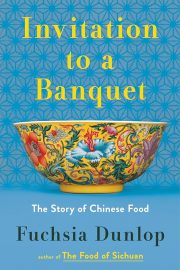
Invitation to a Banquet: The Story of Chinese Food
For paper or electronic copies of the book, please contact Morland Jiang, zj2481@nyu.edu.
In Invitation to a Banquet, award-winning cook and writer Fuchsia Dunlop explores the history, philosophy, and techniques of Chinese culinary culture. In each chapter, she examines a classic dish, from mapo tofu to Dongpo pork, knife-scraped noodles to braised pomelo pith, to reveal a distinctive aspect of Chinese gastronomy, whether it’s the importance of the soybean, the lure of exotic ingredients, or the history of Buddhist vegetarian cuisine. Meeting food producers, chefs, gourmets, and home cooks as she tastes her way across the country, Fuchsia invites readers to join her on an unforgettable journey into Chinese food as it is cooked, eaten, and considered in its homeland.
Reviews by Kyle Muntz and in The New York Times
Date & Time: February 21st, Friday | 12:00pm – 1:00pm
Discussant: Joanna Waley-Cohen, Provost and Affiliated Professor of History, NYU Shanghai; Julius Silver Professor of History, NYU
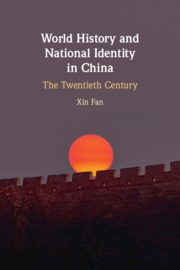
World History and National Identity in China: The Twentieth Century
Nationalism is pervasive in China today. Yet nationalism is not entrenched in China’s intellectual tradition. Over the course of the twentieth century, the combined forces of cultural, social, and political transformations nourished its development, but resistance to it has persisted. Xin Fan examines the ways in which historians working on the world beyond China from within China have attempted to construct narratives that challenge nationalist readings of the Chinese past and the influence that these historians have had on the formation of Chinese identity. He traces the ways in which generations of historians, from the late Qing through the Republican period, through the Mao period to the relative moment of ‘opening’ in the 1980s, have attempted to break cross-cultural boundaries in writing an alternative to the national narrative.
Reviews by Peter Zarrow 和 Ke Ren
Date & Time: March 21st, Friday | 12:00pm – 1:00pm
Discussant: Yushu Geng, Postdoctoral Fellow for Center for Global Asia, NYU Shanghai
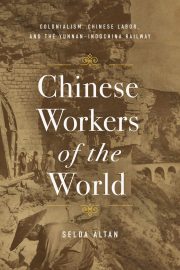
Chinese Workers of the World: Colonialism, Chinese Labor, and the Yunnan–Indochina Railway
Chinese workers helped build the modern world. They labored on New World plantations, worked in South African mines, and toiled through the construction of the Panama Canal, among many other projects. While most investigations of Chinese workers focus on migrant labor, Chinese Workers of the World explores Chinese labor under colonial regimes within China through an examination of the Yunnan-Indochina Railway, constructed between 1898–1910.
Drawing on Chinese, French, and British archival accounts of day-to-day worker struggles and labor conflicts along the railway, Selda Altan argues that long before the Chinese Communist Party defined Chinese workers as the vanguard of a revolutionary movement in the 1920s, the modern figure of the Chinese worker was born in the crosscurrents of empire and nation in the late nineteenth century. Yunnan railway workers contested the conditions of their employment with the knowledge of a globalizing capitalist market, fundamentally reshaping Chinese ideas of free labor, national sovereignty, and regional leadership in East and Southeast Asia.
Reviews by Joshua Howard 和 Rebecca Karl
Date & Time: April 25th, Friday | 12:00pm – 1:00pm
Discussant: Shuang Wen, Clinical Assistant Professor of History, NYU Shanghai
邮箱:shanghai.cga@nyu.edu
电话:+86 (21) 20595043
微信公众号:NYUShanghaiCGA
地址:
上海市浦东新区杨思西路567号
W822室

© 2024 All Rights Reserved